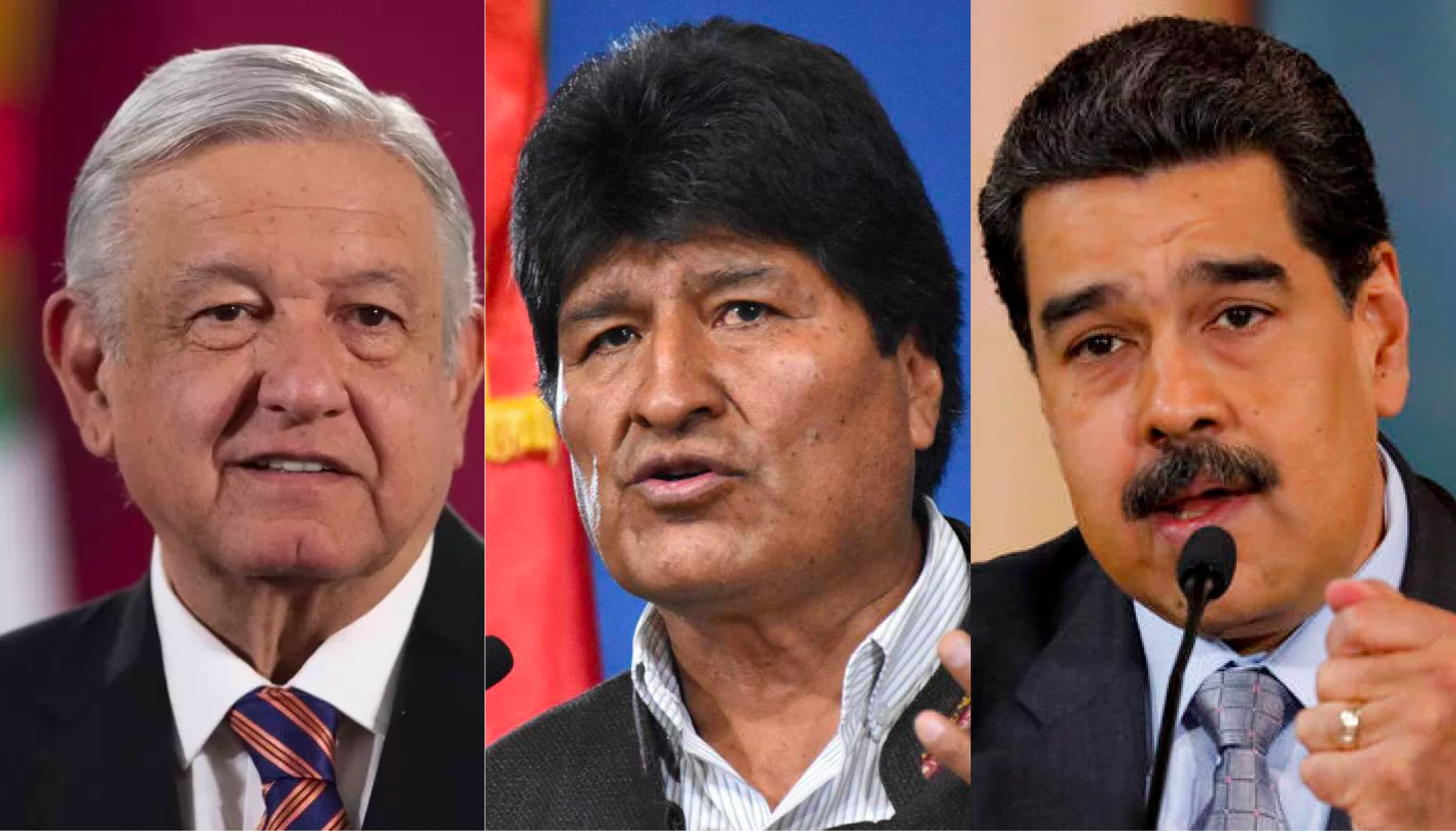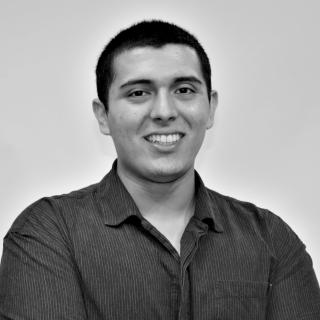
Latin American Leaders React to the last days of the Trump Presidency
The domestic attack on the Capitol not only stunned the American public, but showed the globe how divided the nation truly is.
Certifying the Electoral College votes after a presidential election is an event that rarely makes headlines. The process which usually takes less than an hour was drawn out for an entire day last Wednesday with a coup attempt at the center.
President Donald Trump contested the results of November’s election, which asserted that he would be a one-term leader, for over two months. He told supporters that vote-by-mail, an alternative voting method that was heavily-pushed as the pandemic ravaged through the country, led to rigging and fraud that favored Democratic candidate Joe Biden.
The president’s legal team led by former New York City Mayor Rudy Giuliani lost over 50 cases and had multiple arguments dismissed by the U.S. Supreme Court.
In press briefings members of the team promoted conspiracy theories by claiming that Biden’s victory was thanks to the software used by Dominion Voting Systems being commissioned by the late-Venezuelan leader Hugo Chavez as well as the influence of “communist money” and the Clinton Foundation.
Trump continued to challenge results particularly in Georgia, a state the former vice president marginally carried by .25% of the vote but that translates to over 12,000 ballots. After three recounts, it was still clear that Democrats flipped the Peach State blue.
The president gave a contradicting message to Georgia voters because he claimed there was fraud in his race, yet he did not want that to depress turnout from Republicans in the state’s Senate runoff elections on Jan. 5.
A phone call between Trump and Georgia’s Secretary of State Brad Raffensperger from Jan. 2 proved that he wanted the election official to against his duties and “find” more votes so that he would win the state.
Jan. 6 would deliver two blows to the outgoing president as Democrats stunned the country by winning both runoff races and Congress would be certifying President-Elect Biden’s victory.
He held an event at the National Mall with supporters called the “Save America” rally, where he refused to concede, told Vice President Mike Pence to overturn the Electoral College results even though he could not unilaterally reject them, and incited his supporters to go the Capitol to tell elected officials that they will “never take our country back with weakness.”
The scenes that followed will be painfully remembered in the nation’s history. Trump supporters stormed the Capitol and this forced many elected representatives to fear for their lives and seek refuge.
Politicians from both sides quickly argued that Trump had incited this insurrection and that the event was a threat to the country’s democracy.
Even after Trump condemned the violence, Twitter decided to permanently ban his account as the president had used the social media platform to spread misinformation about election security and the company said his suspension was made due to “the risk of future incitement of violence”
On Wednesday, Jan. 13, Trump became the first U.S. president to be impeached twice and even if he is not removed before Biden’s inauguration, a conviction following a Senate trial would bar him from seeking office ever again.
Fraud accusation and opposition movements wanting to siege federal government buildings are familiar sites for Latin American countries since they have less stable democracies.
Irony lies in the fact that for decades, the U.S. has used its influence to criticize and in some cases involve itself in the elections of countries in the global south.
But with the events of the past week, world leaders have seen that America is not exempt from the same internal issues they face.
Now many of them question America’s title of being the globe’s “champion of democracy.”
In the past week numerous regional leaders responded to the events that followed Trump’s Jan. 6 rally.
The relationship between Trump and Mexican president Andrés Manuel López Obrador has been difficult to gauge.
The American president was detested in Mexico prior to AMLO taking office for comments he made at the start of his presidential campaign in 2015 about Mexican immigrants.
"When Mexico sends its people, they're not sending their best. They're sending people that have lots of problems, and they're bringing those problems to us. They're bringing drugs. They're bringing crime. They're rapists." Trump said.
AMLO became Mexico’s president in December 2018 in a historic election, but in the Spring of the following year, he was already trying to avoid confrontation with his North American counterpart.
President Trump threatened to impose a 5% tariff increase on goods coming from Mexico if the country could not stem the flow of Central American seeking asylum at their shared border.
There was a radical shift in tone when both leaders met in Washington D.C. in July to celebrate the USMCA, the successor of NAFTA, going into effect. This was AMLO’s first foreign visit and he had nothing but kind words to exchange with the American president.
When asked about the assault on the Capitol, the Mexican head of state preferred to signal a neutral stance towards the event.
“We are not going to intervene in these matters that should be resolved, and attended to by the Americans,” AMLO expressed.
On the issue of social media companies silencing the American president AMLO did not defend Trump’s comments, but instead accused the companies of censorship.
“I don't like censorship. I don't like anyone being censored and having their right to transmit a message on twitter or on Face taken away. I don't agree with that,” he said.
He has since stated on Thursday that he will raise the issue of social media censorship at the next G-20 meeting which will be held in Italy in May.
AMLO was also late to recognize president-elect Biden’s victory. This could all be because the Mexican politician has a history of contesting election results. He did so in both of his previous presidential runs in 2006 and 2012.
He argued that his narrow loss in 2006 to former energy minister Felipe Calderón was mainly down to irregularities like ballot tossing. AMLO’s victory here would have made Mexico an influential addition to Latin America’s “pink tide” — when countries across the regions were electing lefist revolutionary candidates.
After that loss, he and thousands of his supporters gathered in Mexico City’s Zocalo to hold an alternative inauguration ceremony where he claimed he was the country’s legitimate leader while wearing an unofficial Mexican sash.
Venezuelan president Nicolás Maduro used what happened on Jan. 6, which he called a facist assault, to comment on the political authority of the U.S.
RELATED CONTENT
“Who would have thought it, from the country where the coups d'état, the invasions, arise, it was returned to them... These poor rural whites, are the same ones that one sees disguised as Superman invading Iraq, Vietnam, Afghanistan, Libya, Syria Panama, Granada,” Maduro said.
Throughout his presidency, Trump has aggressively tried numerous tactics to pressure Chavez’s successor to step down.
In 2019, he placed new sanctions on Venezuela which further crippled the South American country’s economy that was previously suffering from six-digit inflation.
At his 2020 State of the Union address, President Trump invited opposition leader Juan Guaidó to garner international support for him. This resulted in roughly 60 countries recognizing him as Venezuela’s legitimate leader.
Former National Security advisor John Bolton said that “all options are on the table” when it came to solving the country’s political turmoil. This included considering a military invasion.
Guaidó led a protest to the National Assembly last year after national guardsmen prevented members of the opposition party from entering the legislative building to be sworn in and start a new congressional session.
Bolivian leader of the Movement for Socialism party (MAS) and former president Evo Morales is a leftist figure that was deposed under the Trump presidency, unlike Maduro.
He has long angered the U.S. by going against their interests in Bolivia. In the 1980s, Morales organized farmers to oppose the measure of coca eradication, a response to the “War on Drugs” and intended to stop the flow of cocaine — processed coca — from entering the country.
At the start of the 21st century, he campaigned for popular ownership of the country’s natural resources. This prompted the U.S. to threaten to lower aid to Bolivia if Morales won the presidency in the 2002 elections.
After nearly 14 years in power, Bolivia’s first indigenous president was ousted following a military coup that Trump supported.
“The resignation yesterday of Bolivian President Evo Morales is a significant moment for democracy in the Western Hemisphere. After nearly 14 years and his recent attempt to override the Bolivian constitution and the will of the people, Morales’s departure preserves democracy and paves the way for the Bolivian people to have their voices heard,” President Trump stated.
Opposition candidates in the 2019 elections raised suspicion over a halt in the quick count of votes on election night and trusted an inaccurate report on Bolivia’s electoral process from the Organization of American States.
Morales spent over a year in exile in Mexico and Argentina but after MAS candidate Luis Arce received overwhelming support in last year’s general election, he has since returned to his country.
On Thursday, Jan. 14, Morales took to Twitter to condemn Trump’s actions towards the American people and other countries.
“Trump imposes sanctions, organizes interventions and promotes racism and fascism. He struck a blow to his democracy and his people. He is the only terrorist President in the world, he should be tried for genocide. Freedom, dignity and diversity are respected. Long live Plurinational America!” he wrote.
Trump impone sanciones, organiza intervenciones y promueve racismo y fascismo. Hizo un golpe a su democracia y a su pueblo. Es el único Pdte. terrorista del mundo, debería ser juzgado por genocidio. La libertad, la dignidad y la diversidad se respetan
— Evo Morales Ayma (@evoespueblo) January 14, 2021
¡Viva América Plurinacional!
The lefist organizer also made strong comments about the administration’s recent decision to designate Cuba a state sponsor of terrorism. The island nation has been a close ally of the Morales and Maduro governments.
“The United States does not have the morals or authority to list Cuba. Cuba is the most supportive country in the world. In the midst of a pandemic it continues to send doctors who save lives. Meanwhile, the United States invades countries and organizes coups d'état,” he wrote.
Estados Unidos no tiene la moral ni la autoridad para poner en listas a Cuba. #Cuba es el país más solidario del mundo. En medio de una pandemia sigue enviando médicos que salvan vidas. Mientras tanto, Estados Unidos invade países y organiza golpes de Estado.
— Evo Morales Ayma (@evoespueblo) January 12, 2021
While AMLO wishes to not attach his name to events at the Capitol, Maduro and Morales are firm in their stance that the U.S. does not have the authority to want to influence foreign elections if they cannot hold their own democracy together.










LEAVE A COMMENT: